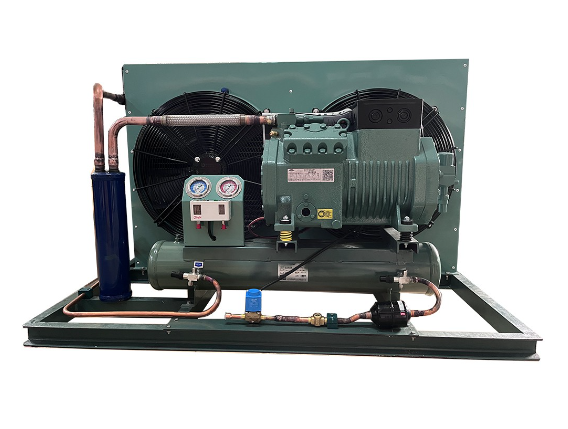When it comes to choosing the right refrigeration system for your business, there are several options available. One such option is a water-cooled cold room refrigeration condensing unit. While these units do offer some advantages, they also come with their fair share of disadvantages. In this article, we'll explore both the pros and cons of water-cooled cold room refrigeration condensing units to help you make an informed decision for your business.
Water-cooled units are generally more energy-efficient than air-cooled units. They use water to dissipate heat instead of relying on natural airflow, which can result in lower operating costs and overall energy consumption.
Water-cooled units take up less space than air-cooled units because they don't require large fans or ductwork. This makes them a great choice for businesses with limited space.
Water-cooled units operate more quietly than air-cooled units. This can be important for businesses located in residential areas or those that require a quieter working environment.
Water-cooled units perform better in hot temperatures because they use water to cool the refrigerant. This means that they can maintain a consistent temperature even when outside temperatures are high.

Water-cooled units are generally more expensive to install than air-cooled units. This is because they require additional plumbing, a water supply, and specialized equipment.
Water-cooled units require regular maintenance to ensure that they are functioning properly. This includes cleaning the condenser, maintaining the water supply, and checking for leaks. These maintenance tasks can be time-consuming and expensive.
Water-cooled units require a constant supply of water to operate. This can be an issue in areas with limited water availability or where water conservation is a concern.
Water-cooled units have a larger carbon footprint than air-cooled units because they consume more energy and require a constant supply of water. This can be a concern for businesses that prioritize sustainability and environmental responsibility.
While water-cooled cold room refrigeration condensing units do offer some advantages, they also come with several disadvantages. These units are more energy-efficient, space-saving, quieter, and perform better in hot temperatures than air-cooled units. However, they are also more expensive to install, require high maintenance costs, consume water, and have a larger environmental impact. Businesses should carefully consider these factors when deciding whether a water-cooled unit is the right choice for their refrigeration needs.